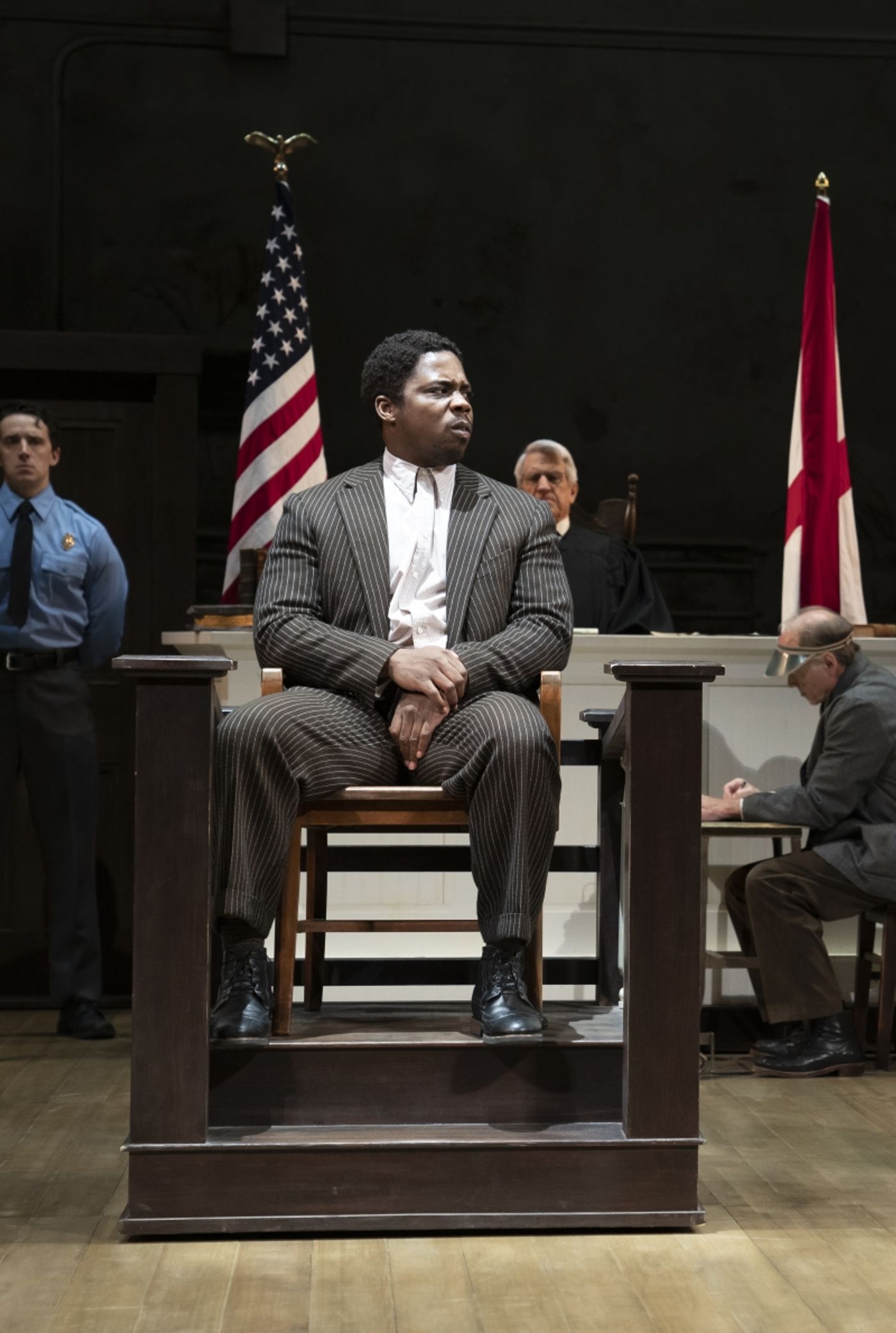Review: TO KILL A MOCKINGBIRD at John F. Kennedy Center For The Performing Arts
One more week to experience the national tour's D.C. stop before it closes Aug. 27.
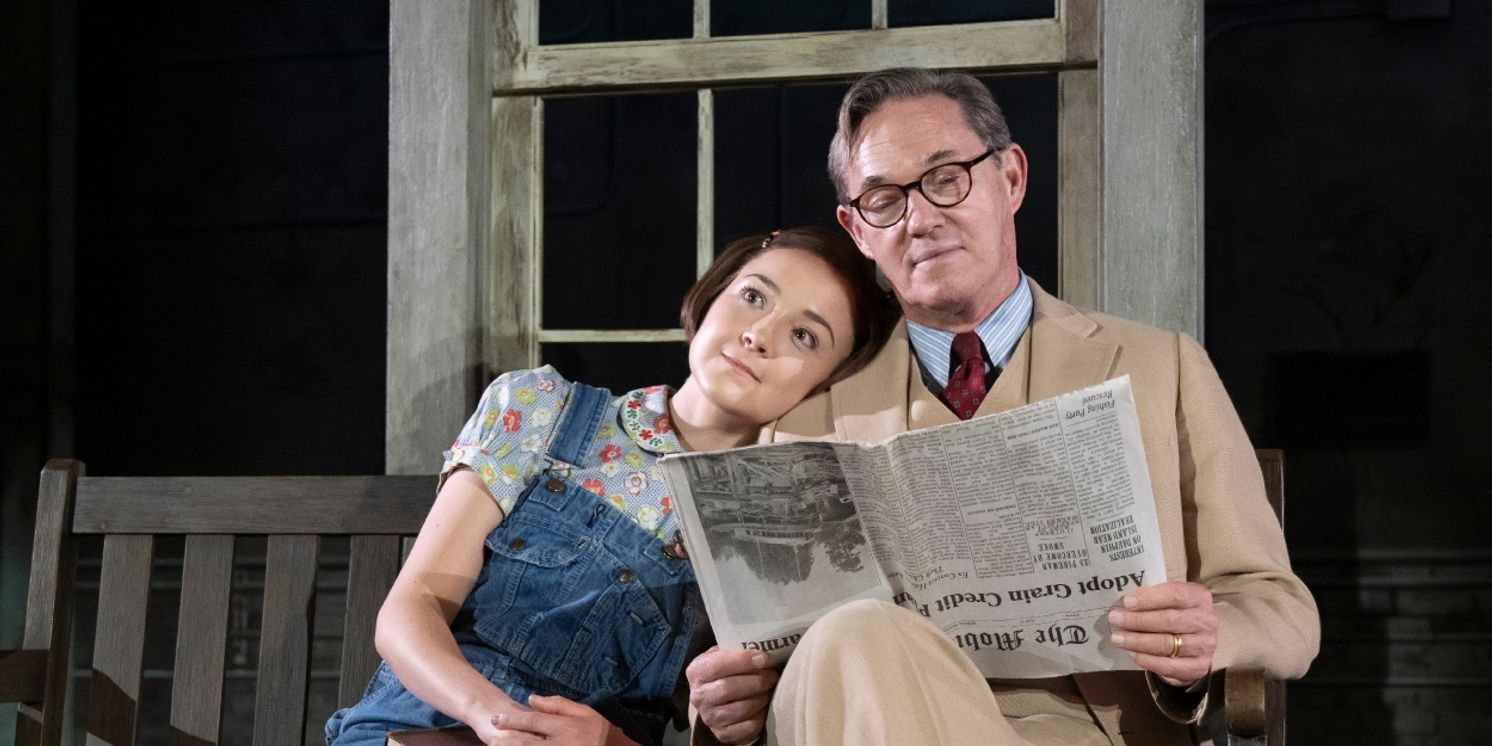
.jpg?format=auto&width=1400)
Richard Thomas (r)
Seeing Harper Lee's To Kill a Mockingbird, now at the Kennedy Center, isn’t the same experience as the novel you were quizzed on in high school or the classic 1962 film. Aaron Sorkin’s script and Bartlett Sher’s direction gain heightened context and nuance from the rise in racial violence in the last decade.
If you’ve let previous tours go by thinking you know this story, experience Sorkin’s adaptation. Justice, inequity, mob mentality and idealism gain added immediacy in this new adaptation seen with contemporary eyes.
The national tour of To Kill a Mockingbird with Richard Thomas as Atticus Finch, which visited D.C. in June 2022, is again at the Kennedy Center though August 27.
The narrative is framed by flashbacks from Scout Finch (Maeve Moynihan), her brother Jem (Justin Mark) and their new summer friend, Dill Harris (Steven Lee Johnson). The youth are played by adult actors who successfully convey the balance of innocence and skepticism as they begin the process of growing up amid issues they can’t fully grasp. Johnson in particular is authentic and memorable – poignant, sweet, and decidedly goofy.
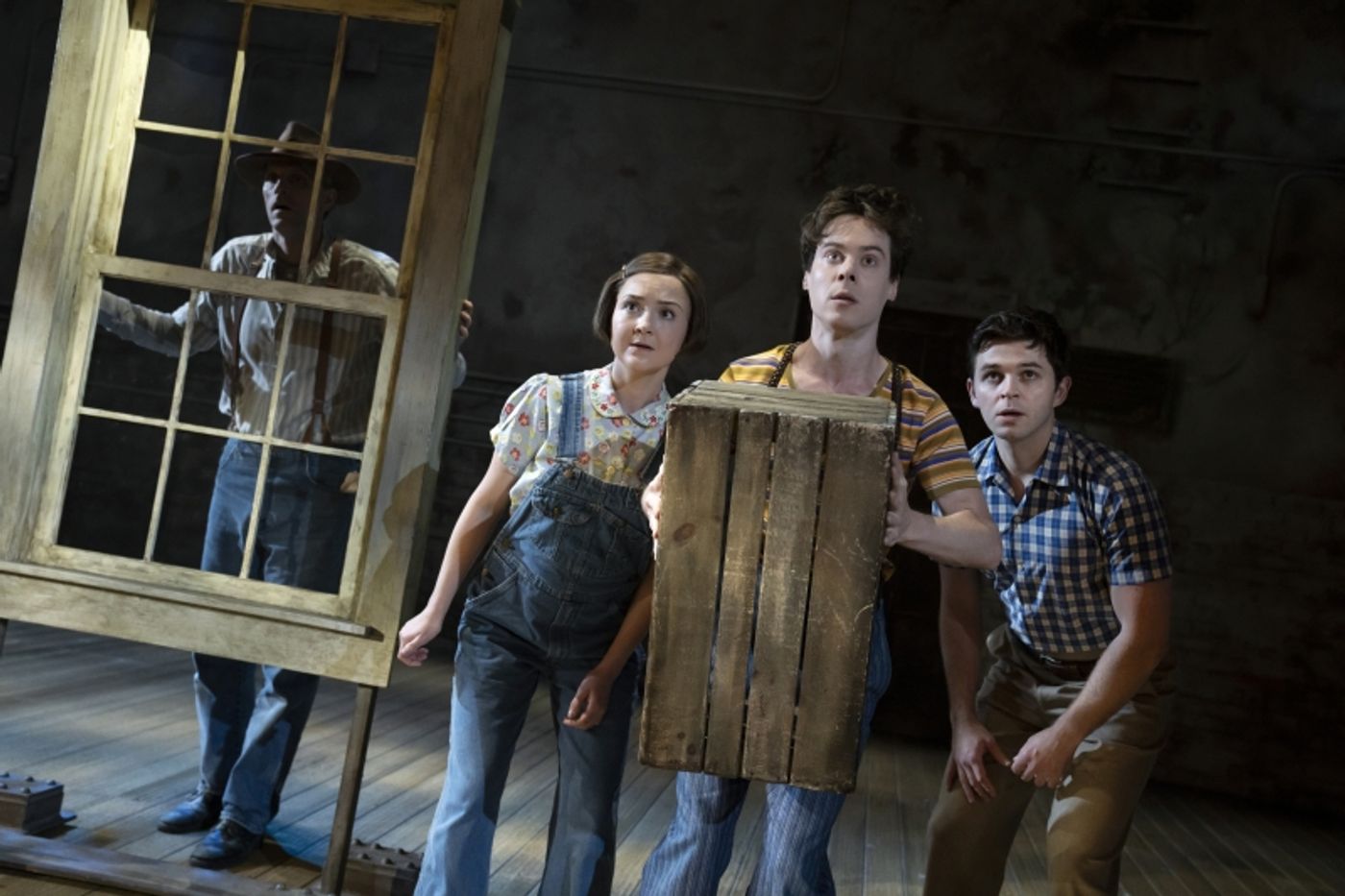
Set in rural Maycomb, Alabama in the midst of the Depression, prominent local lawyer Atticus Finch is reluctantly persuaded to defend Tom Robinson (Yaegel T. Welch), a Black man who is falsely accused of raping a young white woman despite overwhelming evidence of his innocence. While even idealistic Finch knows there is little hope he can convince an all-white, all-male local jury in the Jim Crow South to acquit, there is the possibility of an appeal to a higher court.
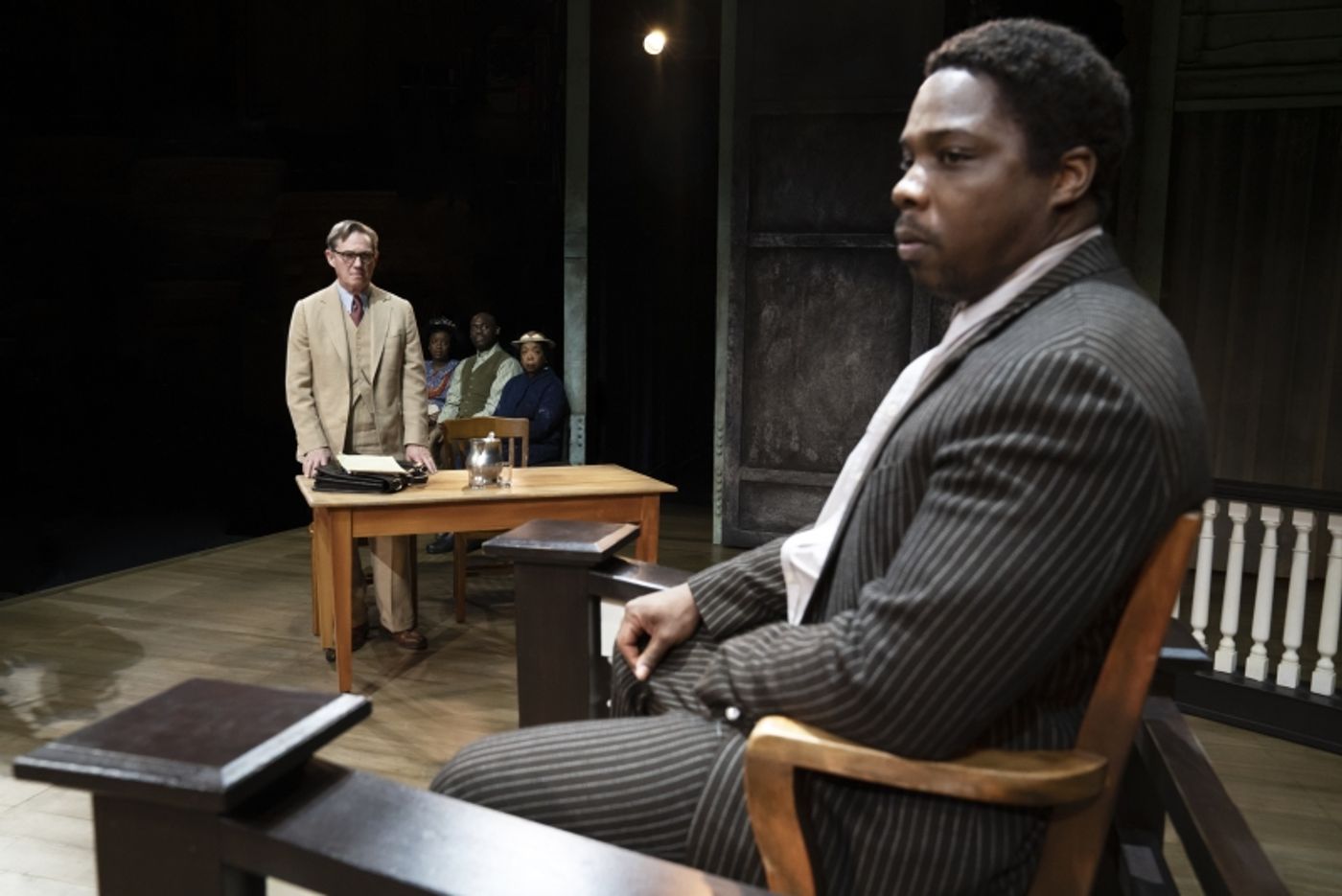
Sorkin’s script gives Tom a greater voice than the book. Welch is powerful in the role. It is a gut-punch when he utters, “I was guilty as soon as I was accused.” His witness box testimony is raw and moving, with his face, voice and body visibly straining.
Calpurnia (Jacqueline Williams) is a voice of reality and conscience, serving as a Greek chorus in the play. When the idealistic Atticus, who thinks there is fundamental good in everyone says, “I believe in being respectful,” Calpurnia shoots back, “No matter who you’re disrespecting by doing it.”
.jpg?format=auto&width=1400)
And it is hard to find any fundamental good in Bob Ewell (Joey Collins) who raped his daughter, spews racist hatred and will allow Robinson to go to the electric chair for the crime. Actress Mariah Lee as victim Mayella Ewell is haunting in the complex role.
Travis Johns is striking in the role of farmer Walter Cunningham, a proud and troubled client struggling to keep his land. He is treated with deference by Atticus although the lawyer knows he’ll be paid in the only way Cunningham is able – through vegetables or scavenged nuts. We see Cunningham later as a hooded Klansman recognized by Scout who references Cunningham’s son. Once recognized and reminded of his connections to the community, Cunningham calls off the mob. But it is because the actor is so notable and recognizable it is a shame he is double cast as Boo Radley in Act 2. Although Johns does an admirable job as the quiet and vulnerable Boo Radley, the obvious doubled part pulls the audience away from a key moment in the drama.
Another disappointing surprise in such a high-profile professional tour is how inconsistent many of the actors are with their attempt to speak in the accent of south Alabama. The problem is not one of precise linguistic authenticity, it’s that in struggling with the rhythm and inflection of the drawl, the meaning of the words and honest emotional connection among actors was sacrificed at times.
The tour, which launched in March 2022, seems a bit tired after an admirable 500+ performances in 44 cities and counting. Cues (like gunshots) were anticipated and some important moments lacked force and freshness. Even the Emmy Award-winning Thomas seemed a bit flat.
Yet it’s an important work to experience now and to ponder.
The design elements are a show in themselves with set pieces (designed by Miriam Buether) moving in and out from offstage or flown in from above. The shell of the set, which greets the audience as the curtain rises, is an industrial loft with broken windows and other signs of disrepair; these serve as the backdrop for other flexible set pieces for the Finch home, courtroom and exterior Macomb. Jennifer Tipton’s lighting design adds significant atmosphere, particularly in the courtroom where the lighting draws focus to the faces of Tom, Mayella and others as they testify. Sound designer Scott Lehrer working with an original score by Adam Guettel layers in spiritually infused vocals to great effect. Ann Roth’s costume design illustrates the social strata of Maycomb in the 1930s. The costuming plays an especially important part in accepting adult actors as young Scott, Jem and Dill.
To Kill a Mockingbird tours only briefly to the Kennedy Center. Get your tickets now – there’s one more week to experience this powerful production before it closes on August 27.
Runtime: 3 hours with one 15-minute intermission
Harper Lee’S TO KILL A MOCKINGBIRD by Aaron Sorkin and directed by Bartlett Sher is presented by The John F. Kennedy Center for the Performing Arts and runs at the Eisenhower Theater through August 27. For tickets, accessible performance information, attendance policies, and further information visit the Kennedy Center's website.
The company also includes Mary Badham, Stephen Elrod, David Manis, Liv Rooth, Luke Smith, Jeff Still, David Christopher Wells, Greg Wood and ensemble members Scout Backus, Morgan Bernhard, Denise Cormier, Christopher R Ellis, Daniel Neale, Andre Ozim and Dorcas Sowunmi.
The production contains racially explicit language, references of sexual abuse and sounds of gunfire.
Photographer: Julieta Cervantes
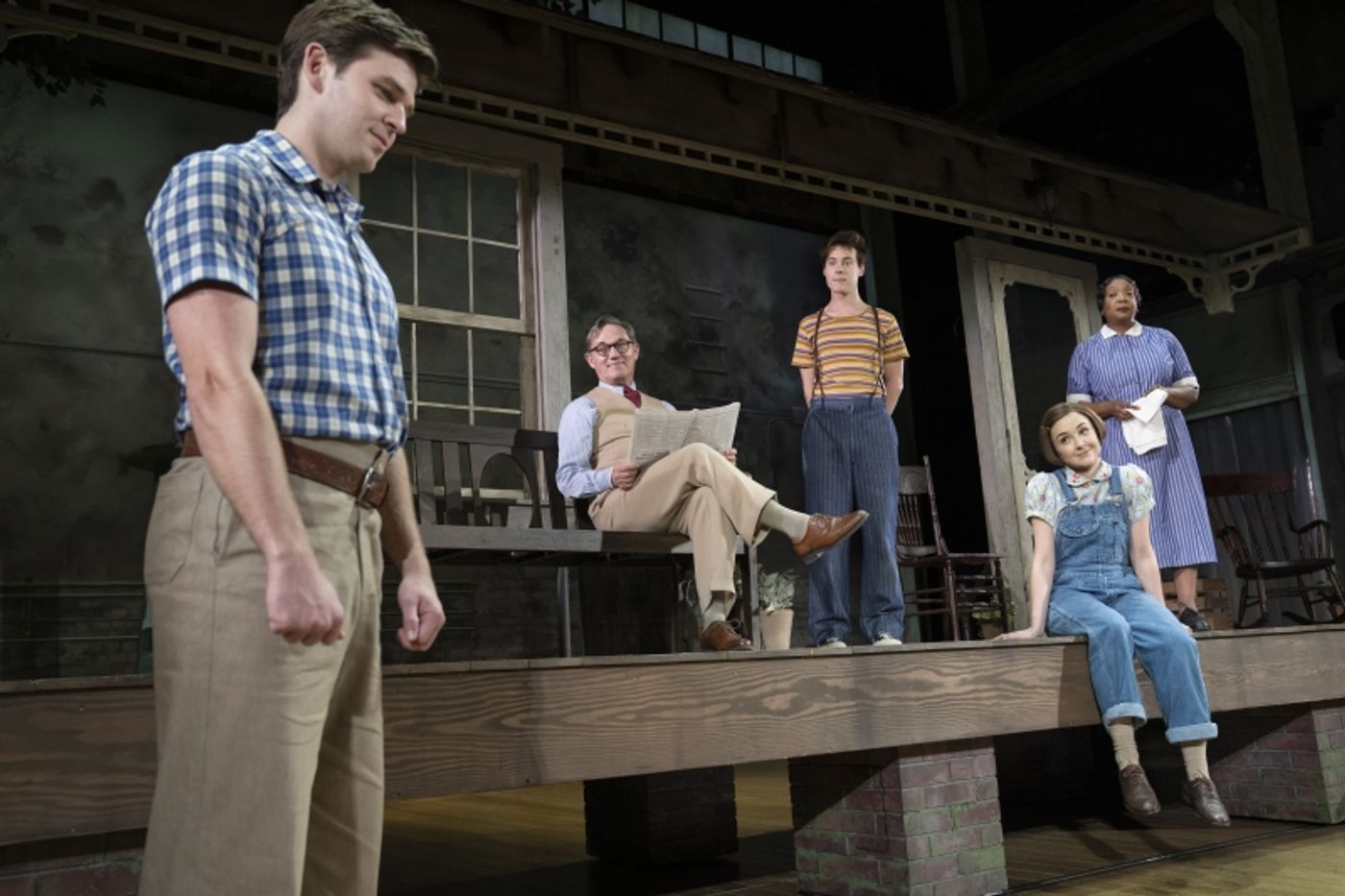
Maeve Moynihan, Jacqueline Williams
Reader Reviews
Videos


